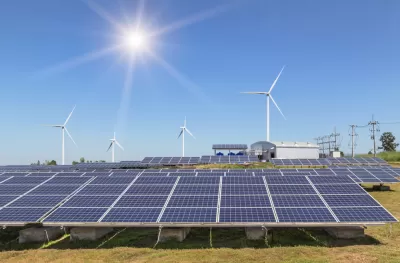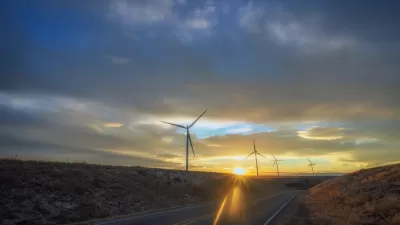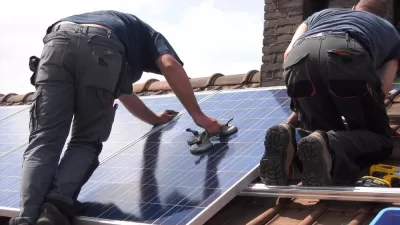A regulatory change at the federal level will shorten the time it takes clean energy projects to gain approval and start providing energy to the grid.

Changes to a federal rule will let clean energy reach the grid faster, reports Justine Calma in The Verge.
“As it is now, it takes an average of five years for a new energy project to connect to the grid. There’s a huge backlog of more than 2,000 gigawatts of clean energy generation and storage that’s just waiting in line for approval. That’s about as much capacity as the nation’s existing power plants have for generating electricity today,” Calma explains.
To clear the backlog, the new federal rule will require grid managers to assess projects in clusters instead of one at a time. They’ll also face firm deadlines and penalties for failing to finish interconnection studies on time. The new rule prioritizes projects that are the farthest along in development and also includes new requirements for project developers, like financial deposits to discourage them from proposing projects that might not pull through.
Clean energy advocates cheered the regulatory changes, which could go a long way toward achieving a 100 percent renewable power grid by 2035, the goal set by the Biden administration.
FULL STORY: Adding clean energy to the US power grid just got a lot easier

Maui's Vacation Rental Debate Turns Ugly
Verbal attacks, misinformation campaigns and fistfights plague a high-stakes debate to convert thousands of vacation rentals into long-term housing.

Planetizen Federal Action Tracker
A weekly monitor of how Trump’s orders and actions are impacting planners and planning in America.

San Francisco Suspends Traffic Calming Amidst Record Deaths
Citing “a challenging fiscal landscape,” the city will cease the program on the heels of 42 traffic deaths, including 24 pedestrians.

Cleveland to Boost Bike Safety With New Bike Lanes, School Programs
The program, using curriculum created by Cleveland Bikes, is part of a broader effort to improve safety along school routes.

Florida Home Insurers Disproportionately Dropping Low-Income Households
Non-renewal rates are highest in inland counties, not the coastal areas most immediately vulnerable to storms.

Half of Post-Fire Altadena Home Sales Were to Corporations
Large investors are quietly buying up dozens of properties in Altadena, California, where a devastating wildfire destroyed more than 6,000 homes in January.
Urban Design for Planners 1: Software Tools
This six-course series explores essential urban design concepts using open source software and equips planners with the tools they need to participate fully in the urban design process.
Planning for Universal Design
Learn the tools for implementing Universal Design in planning regulations.
Gallatin County Department of Planning & Community Development
Heyer Gruel & Associates PA
JM Goldson LLC
City of Camden Redevelopment Agency
City of Astoria
Transportation Research & Education Center (TREC) at Portland State University
Jefferson Parish Government
Camden Redevelopment Agency
City of Claremont





























